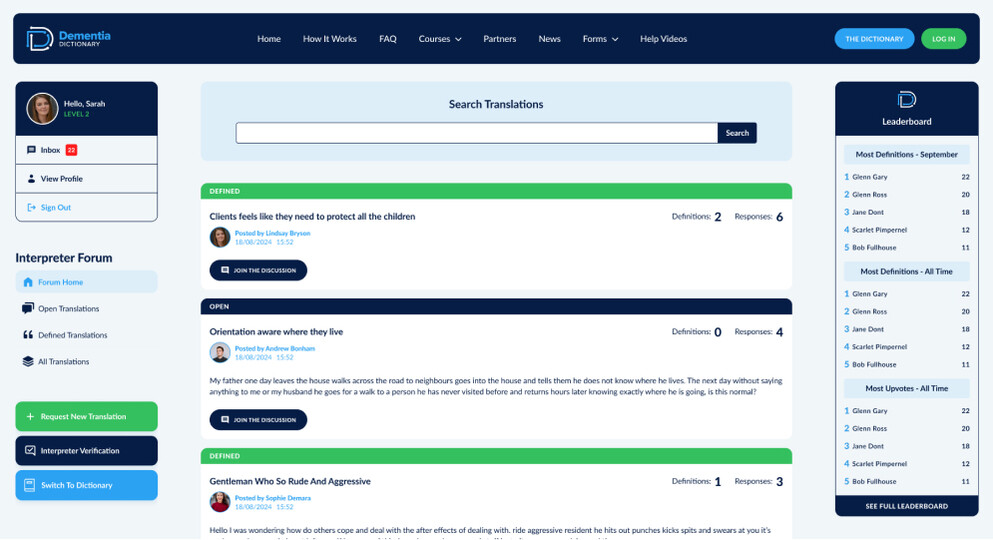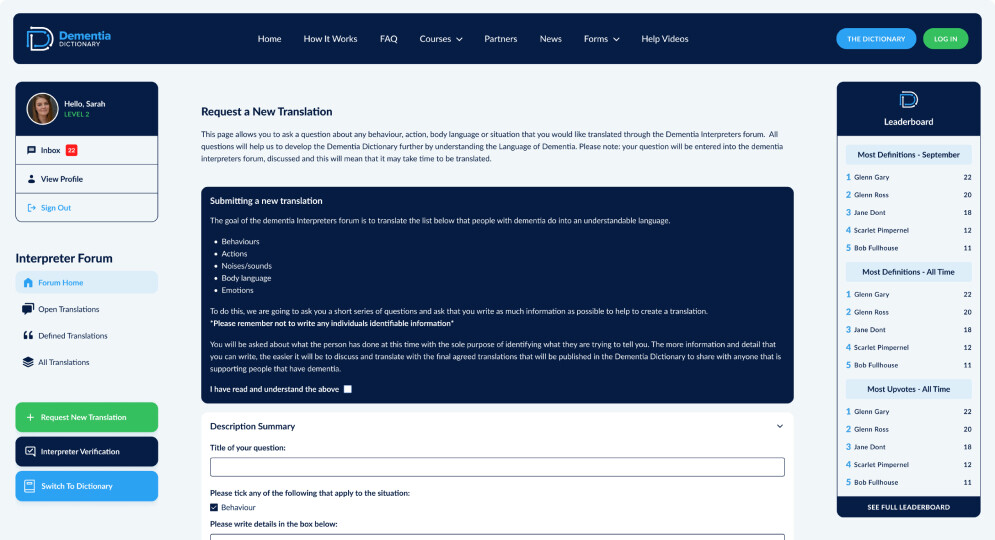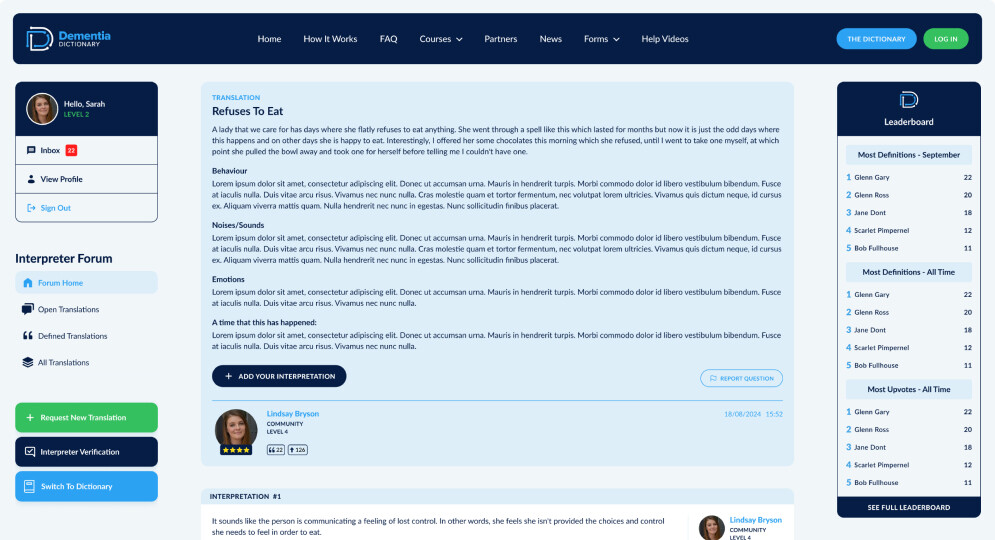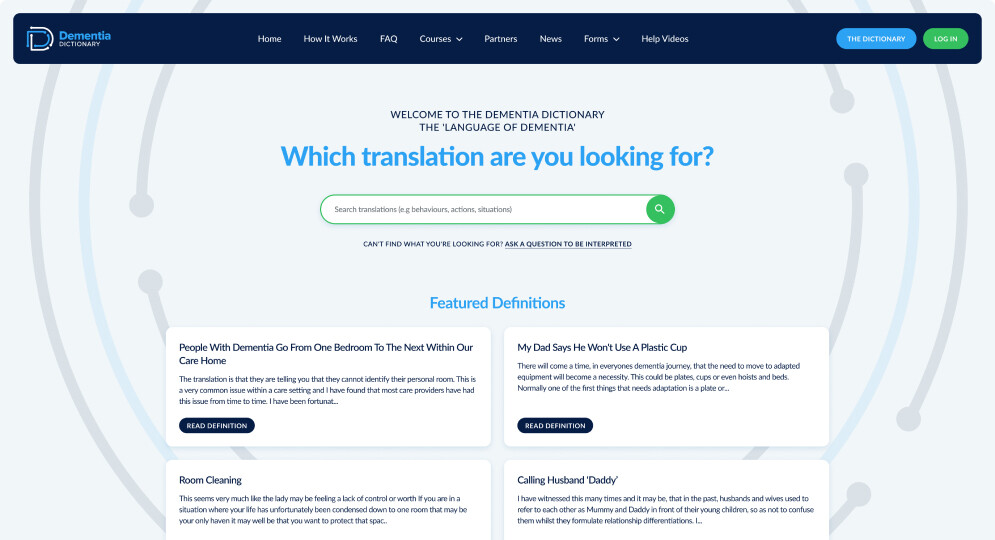The Dementia Dictionary works through collaboration between Dementia Interpreters around the world, sharing experiences and knowledge to translate the 'Language of Dementia' so that we can once again form successful conversations with people who have had a diagnosis of dementia.
How It Works




The Interpreter Forum
The Dementia Interpreter forum drives the content of the dictionary. It is a fantastic way to utilise the experience of qualified Dementia Interpreters, both professional and community based to be able to work together to translate the 'Language of Dementia'. The forum is where the discussions start as to what may be happening, what causes such behaviours, etc - working together they can decide upon a defined translation that will be published in the Dementia Dictionary. It’s thanks to committed Dementia Interpreters with such experience and our unique voting system that we can ensure definitions are as reliable as possible and will continue to develop over time.
Please note: Interpreters need time to discuss and translate, so keep checking back with the Dementia Dictionary for updated translations.
The Dictionary
Once a translation is defined and agreed upon within the interpreter’s forum, it then transfers to the dictionary to become a freely accessible resource for those who need it. Translations will evolve over time as they are discussed and new knowledge becomes available through the Dementia Interpreters forum. The Dementia Dictionary is an ever-evolving database that pulls from numerous discussions and research. Find a translation that is relevant to you... try it, share it with others and let us help you to understand the language of dementia.
